24 Pelicans Were Euthanized Due to Broken Wings: Is Someone Injuring Them Intentionally?
Local and federal authorities are investigating a suspicious number of pelicans found along the Florida coast with the same type of compound wing fracture
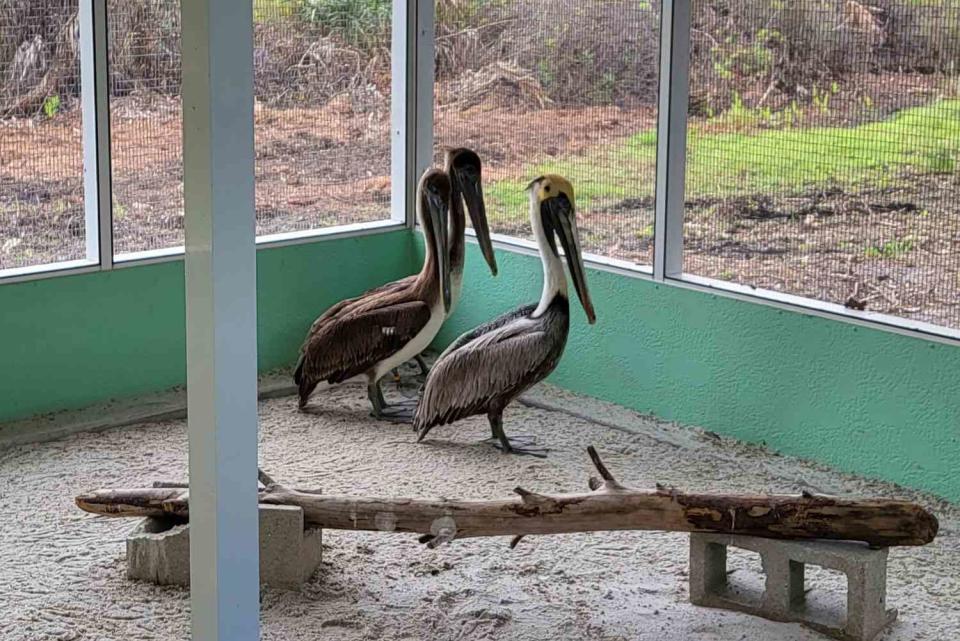
Florida WIldlife Hospital
Pelicans recuperating at the Florida Wildlife Hospital in Palm ShoresAs a lifelong bird and animal lover, Tracy Frampton always got a kick out of the pelicans she saw whenever she and her family went boating on the sparkling waters off the Florida coast.
“They’re comical birds,” says Frampton, executive director of the Florida Wildlife Hospital in Palm Shores in Brevard County on Florida's east coast.
“They’re so odd-shaped,” she says. “But they are so elegant when they fly. They fly a foot above the water and just glide. It’s amazing."
What's not so wonderful is that beginning on Feb. 19, an unusual number of pelicans started showing up at the wildlife hospital with broken wings.
“Occasionally, that will happen,” says Frampton.
Over the course of the next week, she and her staff were shocked when a total of 27 pelicans with broken wings were brought to the hospital.
“We thought, ‘Something’s going on here,’” she says.
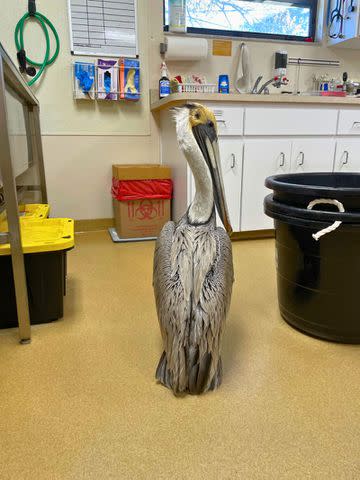
Florida WIldlife Hospital
An injured pelican at the Florida Wildlife HospitalOn Feb. 25, the hospital posted an alert on its Facebook page asking the public to look out for injured or deceased pelicans.
The hospital also reported the incidents to the authorities including the Florida Fish and Wildlife Conservation Commission and the U.S. Fish and Wildlife Service.
Anyone caught harming the federally protected birds will face federal charges.
In a statement sent to PEOPLE, the FWC said it is actively investigating reports of injured pelicans in Brevard County.
The hospital also teamed up with veterinary forensic biologists from the Blue World Research Institute and the University of Florida who found that 24 of the 27 pelicans brought in with broken wings were all suffering from the same kind of fracture.
Eleven deceased pelicans that were brought in had similar injuries.
“If they had gotten tangled in something or hit by a car, there would be more trauma,” says Frampton.
But they didn’t show signs of bruising or any other kind of ailment, except for having a broken wing, she says.
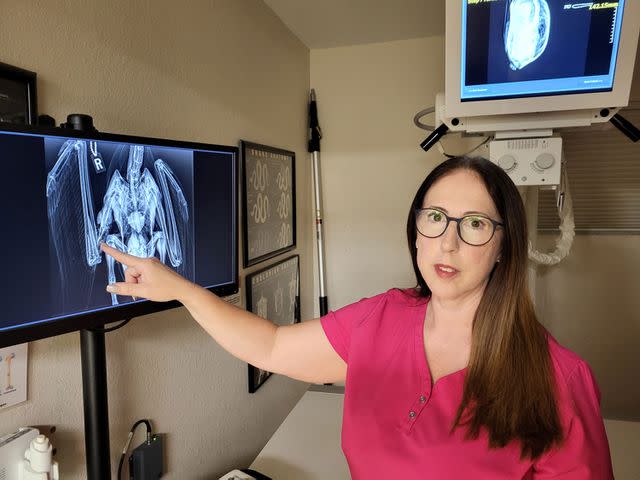
Florida WIldlife Hospital
Florida Wildlife Hospital veterinarian Dr. April Greer points out the compound fractures in one of the injured pelican's wings"It’s very odd that that so many birds have had similar injuries," says Frampton. “Is there someone out there intentionally harming these innocent birds? If so, why?”
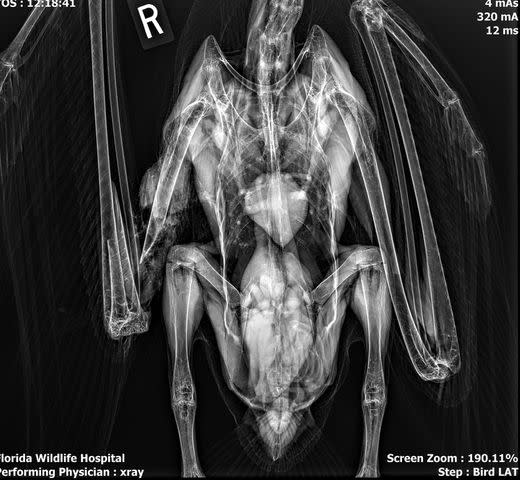
Florida WIldlife Hospital
An x-ray of one of the injured pelican's wings, which was broken in multiple placesThree of the pelicans that were brought in with less severely fractured wings are recuperating at the hospital. “All the rest had to be euthanized,” she says.
Want to keep up with the latest crime coverage? Sign up for PEOPLE's free True Crime newsletter for breaking crime news, ongoing trial coverage and details of intriguing unsolved cases.
The three remaining pelicans are on "cage rest" in the hopes that they may be able to fly again.
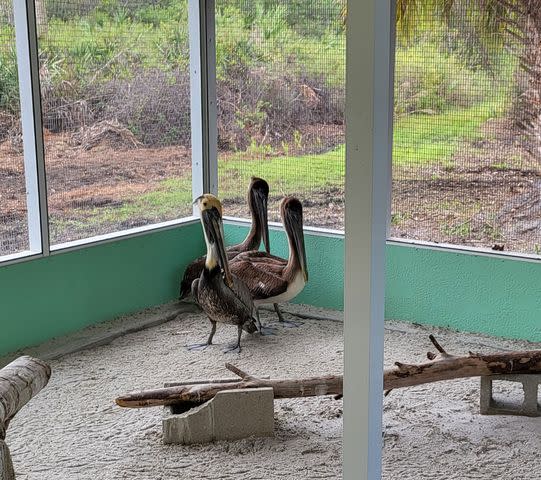
Florida WIldlife Hospital
The three remaining pelicans at the Florida Wildlife HospitalOn Tuesday, Frampton learned that the forensic team would like to perform DNA tests but lack the funding for the $5,000 they need to do it.
Anyone interested in donating to the care of the pelicans at the hospital or for the pelican forensic study can visit the Florida Wildlife Hospital website and click on the link for Pelican Support.
As the scientists and law enforcement continue to investigate the cause of the pelicans' injuries, Frampton and her staff are grappling with the number of birds that have suffered.
“It’s heartbreaking,” says Frampton. “We do this work because we love wildlife and animals and want to help.
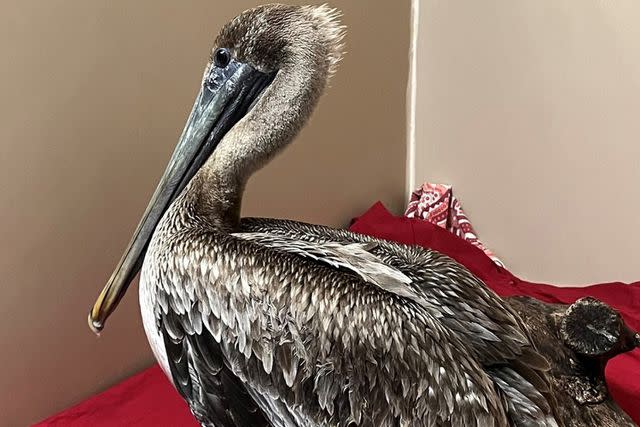
Florida Wildlife Hospital/Facebook
One of the pelicans at the Florida Wildlife Hospital“But when they come in and have to be euthanized, that lowers the morale greatly and upsets people. They're funny-looking birds, but they deserve to live too,” she says.
For more People news, make sure to sign up for our newsletter!
Read the original article on People.

 Yahoo Lifestyle
Yahoo Lifestyle 
